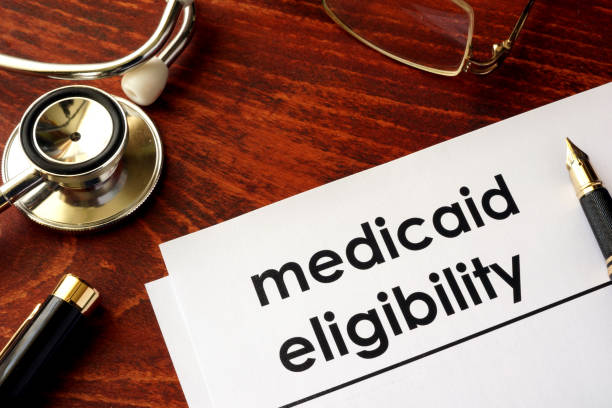By now you’ve likely figured out that nearly every component of the Social Security disability application process involves a lot of waiting and patience. One of those first steps that might involve quite a bit of waiting is the Medicaid application process.
Your medical record is an important part of your disability application, so pursuing Medicaid prior to that application makes sense for many Americans. If you’re wondering what you can do while you wait for your Medicaid application to get approved, we gathered a few suggestions that could help.

While You Wait
We understand how unnerving it can be to see your Medicaid pending status as you wait for an approved or denied notification. Just as you need to prepare and apply for Medicaid or disability benefits, there is plenty you can do while you wait for both decisions to be approved. Some of these things include:
Organize Your Financial Records
Gathering and organizing your financial records is a crucial step while waiting for Medicaid approval. This includes income statements, tax returns, and any other relevant financial documentation. Having these in order will not only streamline the application process but also ensure you have all the necessary information ready for your SSDI application and any questions that arise.
Compile Your Medical History
Take the time to compile a detailed medical history related to your disability. This should include a comprehensive timeline of your condition, diagnoses, treatments, and any relevant test results. Having a well-documented medical history will strengthen your disability application and may expedite the approval process.
Explore Alternative Healthcare Options
While waiting for Medicaid approval, consider exploring alternative healthcare options. This could include seeking out free or low-cost clinics in your area, accessing community health resources, or discussing potential payment plans with healthcare providers. It’s essential to maintain your health and well-being even while navigating the application process.
If You Were Rejected From Medicaid
Just as it can be discouraging to be rejected for disability, it can be equally disheartening to not be approved for Medicaid. There are several things you can do if you’re met with rejection from Medicaid. These include:
Seek Assistance from a Medicaid Specialist
If your Medicaid application is rejected, consider seeking assistance from a Medicaid specialist. They can help identify any discrepancies or issues in your application and guide you through the appeals process.
Review and Resubmit Your Application
Carefully review the rejection notice and address any specific reasons for denial. Make necessary corrections or provide additional information as requested. Then, promptly resubmit your Medicaid application to expedite the review process.
Explore Alternative Health Coverage Options
In the event of a Medicaid rejection, explore other health coverage options available in your state. This may include state-funded programs, healthcare marketplaces, or COBRA coverage if applicable. If you’re not eligible for Medicaid or COBRA, then you might instead be eligible for a low to no-cost plan through the Affordable Care Act. To see if you’re eligible visit healthcare.gov for more information.
How To Get Disability Approved Fast Or Faster Than Most Cases
There’s no way to push the system along to encourage it to move faster. Unfortunately, due to delays that occurred during the early stages of the Covid-19 pandemic, there are still historically long wait times for disability applications approved. Whether you’ve already filed your application or are preparing to file, there are several things you can do to ensure you don’t waste as much time waiting for a response. The key to these pieces of advice is to make sure you’re prepared as much as possible before you apply.
Provide Complete and Accurate Information
Ensure that all information provided in your SSDI application is accurate and complete. Incomplete or incorrect information can lead to delays in the approval process.
Submit Supporting Medical Evidence
Include thorough medical documentation that supports your disability claim. This can include doctor’s notes, test results, treatment plans, and any other relevant medical records.
Consider Seeking Legal Representation
Consulting with a Social Security disability lawyer can significantly expedite the approval process. They have extensive experience navigating the SSDI application process and can ensure all paperwork is submitted correctly and in a timely manner.
Free Consultations With Jeffrey A. Rabin & Associates, Ltd.
If you’re navigating the SSDI application process and need expert guidance, Jeffrey A. Rabin & Associates is here to help. Our experienced team specializes in Social Security disability cases and can provide valuable assistance to ensure your application is handled efficiently. Schedule a free case consultation today to get the support you need on your journey to approval.
